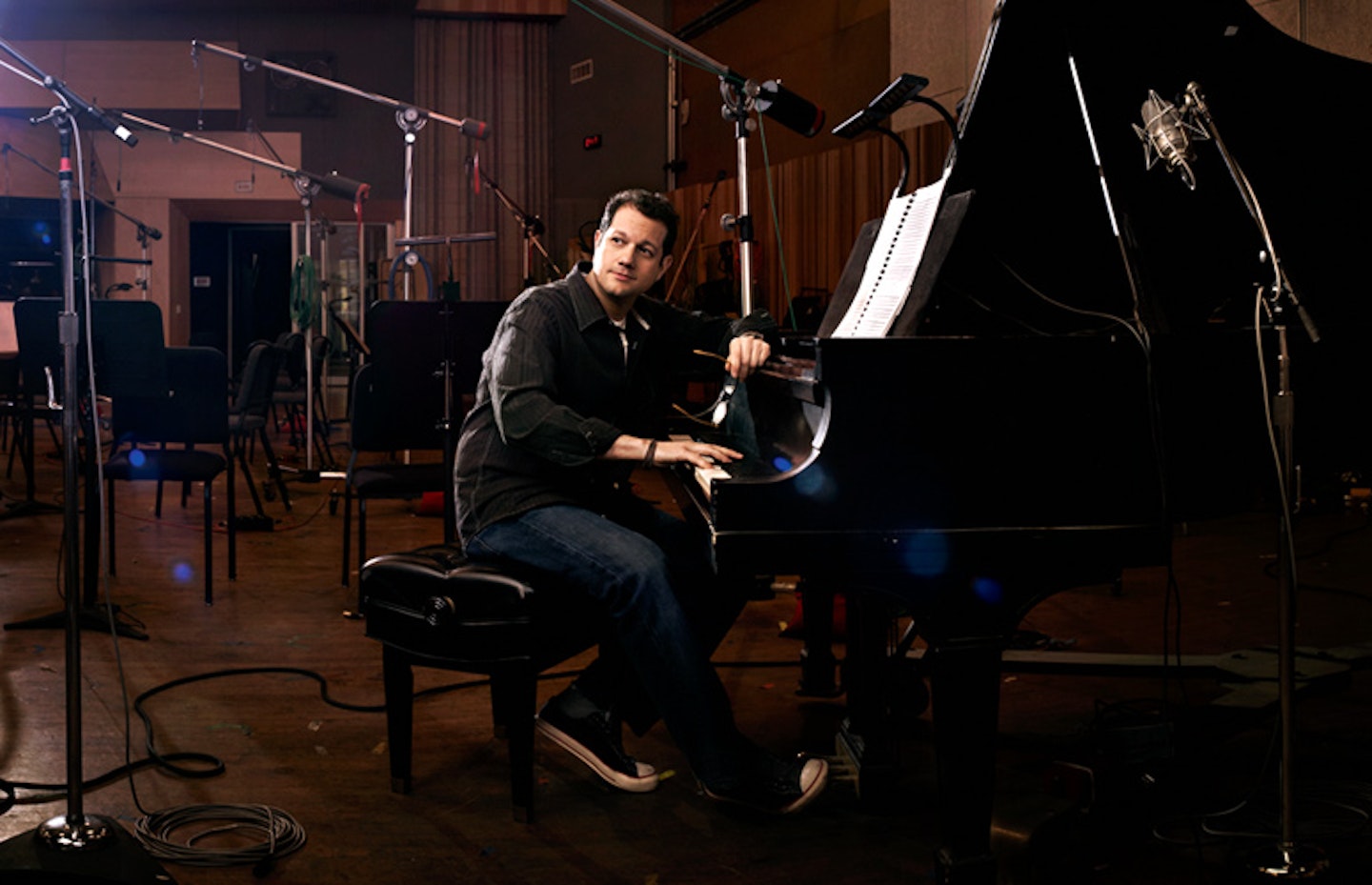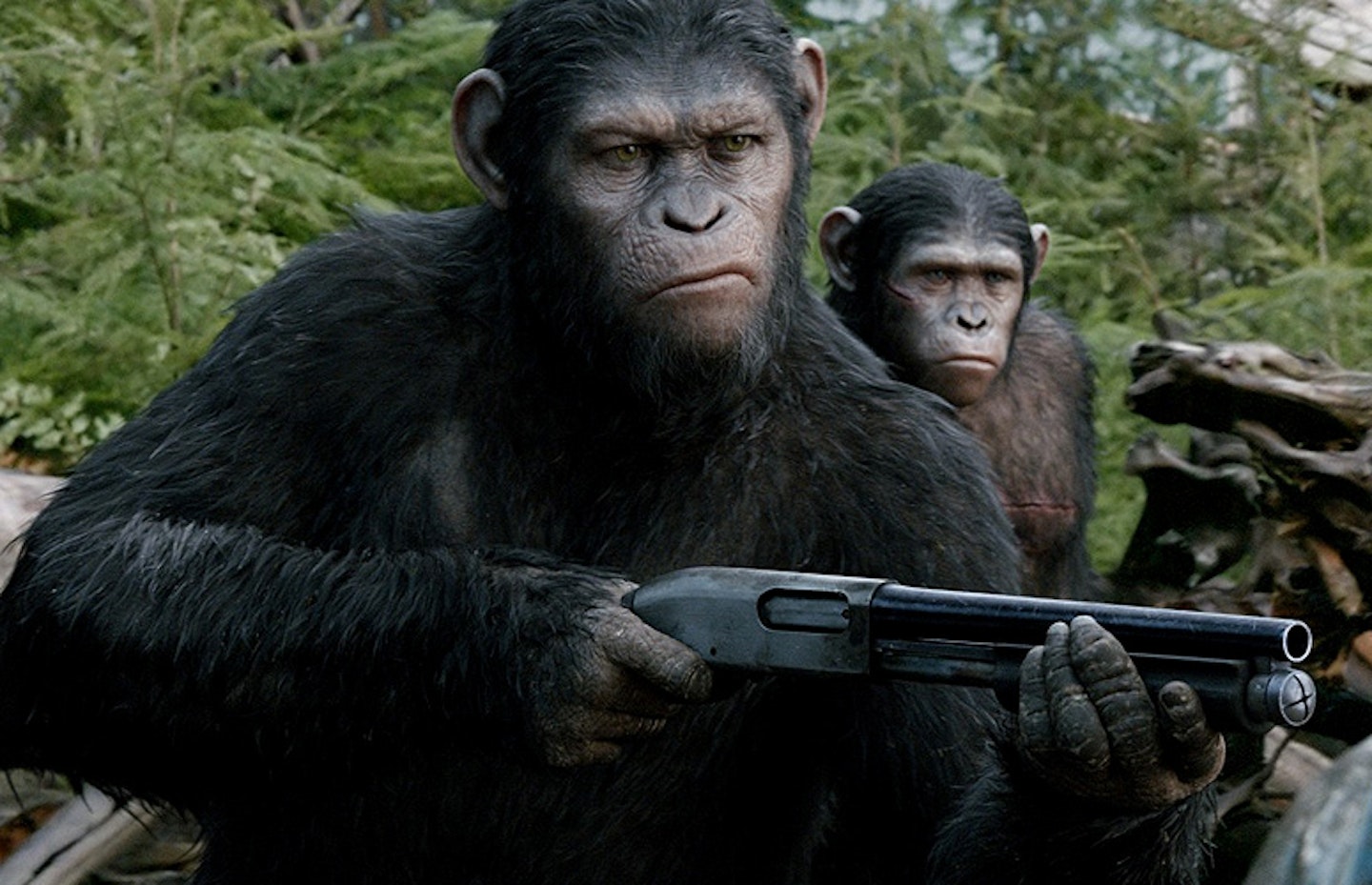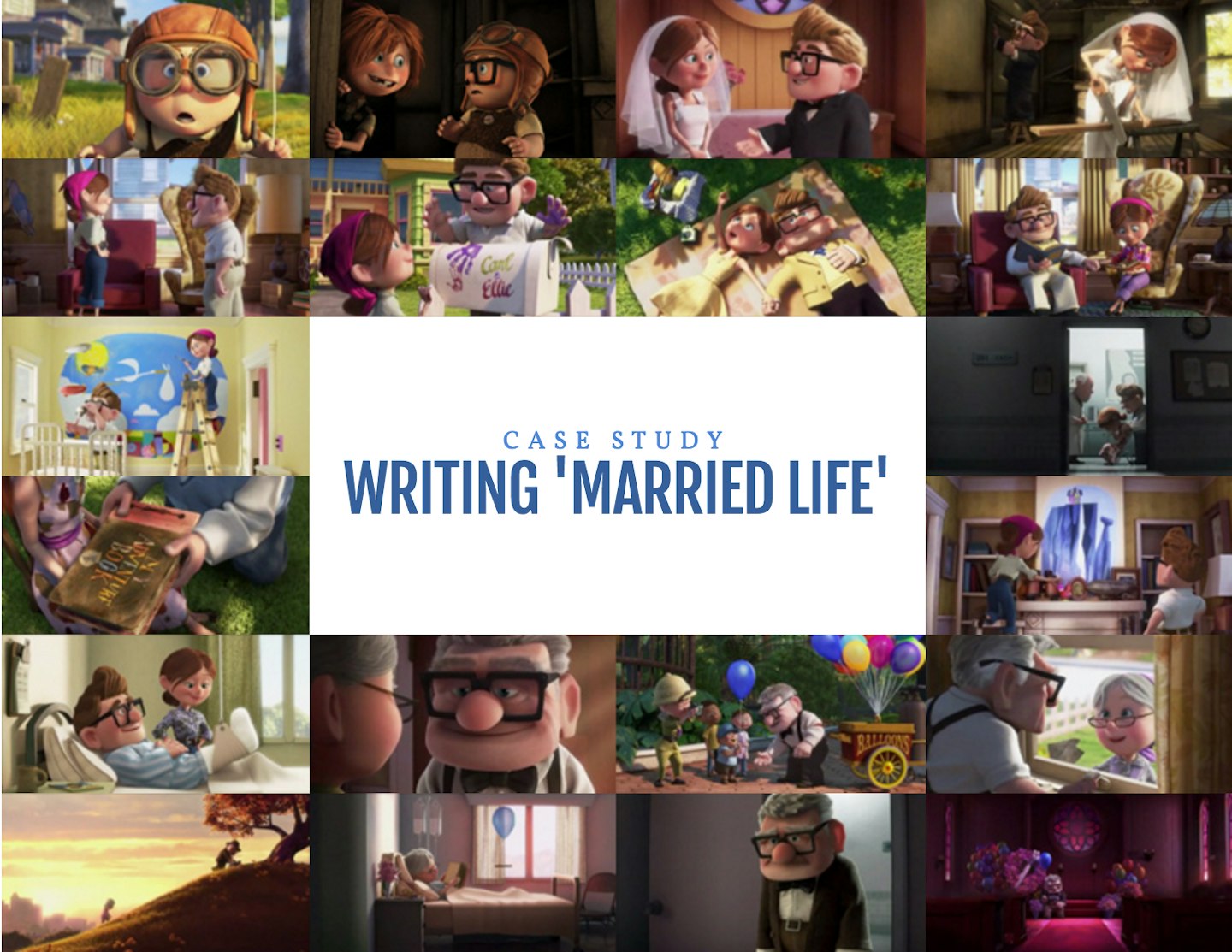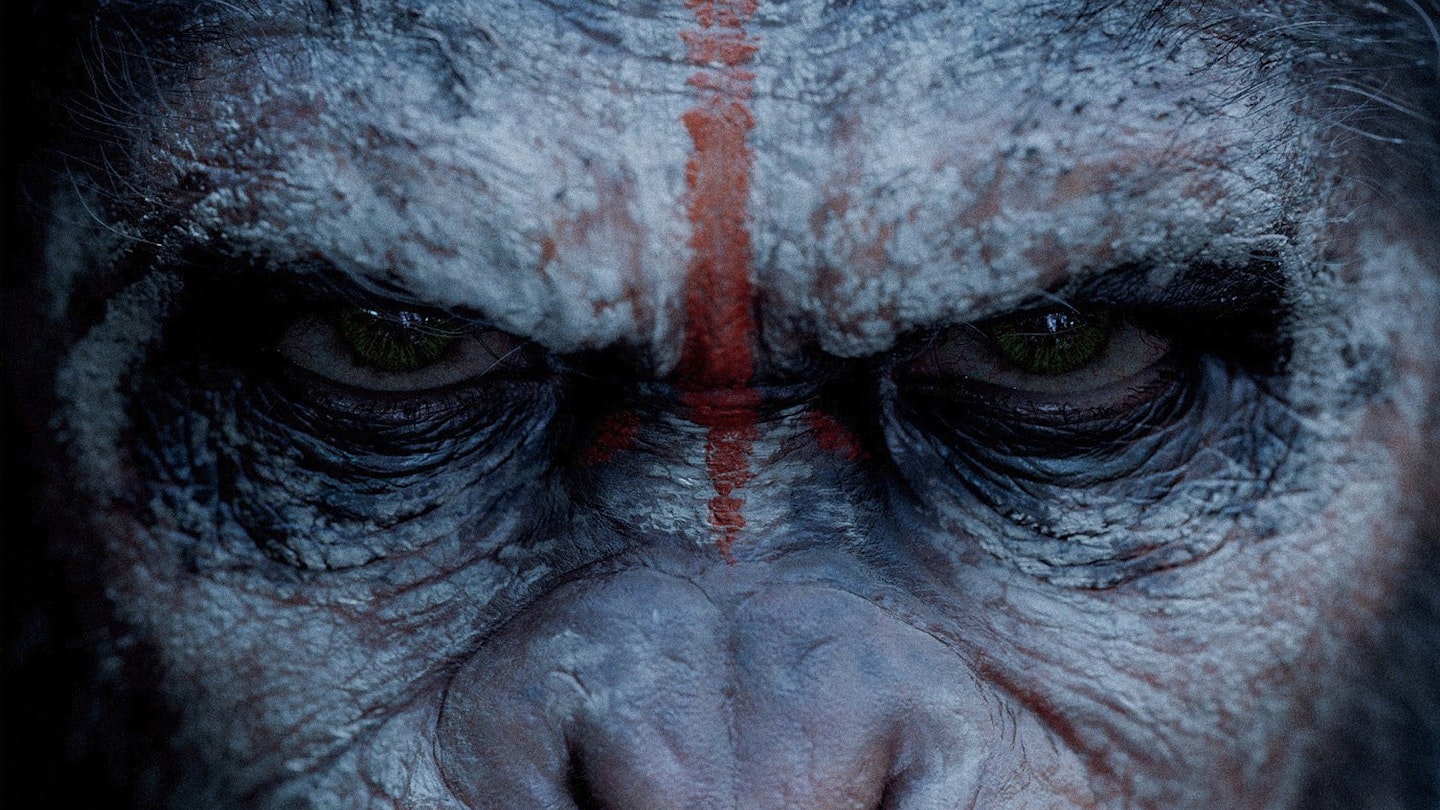He reduced a good proportion of the audience to tears with his score for Up – and in particular its barnstorming ‘Married Life’ sequence – and geed up the Federation in its fight against rogue Romulans and genetically-engineered warlords in J.J. Abrams’ Star Trek films. Now he’s hard at work on Dawn Of The Planet Of The Apes, but composer of the moment Michael Giacchino took a moment to talk us through what he does for a living, and how he does it.

There's something mysterious about composing music. While many of us will have hummed a tuneless ditty absently in the shower or whistled while we work, few can build a coherent melody and harmony around that, score the thing for a full orchestra and employ it to bring to life the subtext of a cinema story. For that, you need a film composer both talented and trained – which is where Michael Giacchino comes in for a privileged few directors who have him on speed dial. But, perhaps surprisingly, the origin of some of his best work, like the Oscar-winning ‘Married Life’ theme from Up, comes from the same place as the rest of us.
“I remember having this idea literally in the shower,” says Giacchino. “I had this thing come to me, and I went out to the piano and played it. Then I thought, ‘OK, I won’t write it down. If I remember it tomorrow, then I’ll present it to Pete [Docter, director] and see what happens’.”
Usually, Giacchino has a more conventional working environment. Like many working parents, his first job each day is getting the kids to school before heading upstairs to his office-slash-music-room to start work, caffeine-fuelled and ready to go. “I try to keep a regular work schedule,” he explains. “I don’t like working all hours of the night and having an unreliable working pattern.” At 12pm sharp, he breaks for lunch “no matter what”. By late afternoon, the kids are home and playing their own instruments. “It starts to get a little noisy!” admits Giacchino, who finishes up soon after to be with his family and “just do things that have nothing to do with work”.
“I remember having this idea literally in the shower.”
Such a strict schedule is not what we associate with composers who, thanks to biopics like Amadeus and Immortal Beloved, are often portrayed as fiery iconoclasts only at peace when they’re burning the midnight oil. “I have friends who do what I do and they will work all hours of the night and work constantly,” laughs Giacchino, “[but] I cannot, cannot do that. I can’t do it ‘cause there’s just other things in life I wanna do, I wanna see. Schedules are what they are; occasionally you have to compromise and you will have to work late, but mostly it’s pretty steady so I can have somewhat of a normal life in this crazy business.”
Giacchino started making films in his basement as a young teenager, and quickly found that creating the music for them was his favourite part of the process. So after he graduated from a course on film and history in New York, he began studying music at Julliard, famous from every high-school movie featuring a would-be musician ever. At the same time, he took day jobs at Universal and Disney, and began to establish himself in the film business. He soon moved to LA where he kept up his music studies. Landing a job as a producer at Disney Interactive, Giacchino hired himself to write the music for their games and began his official career as a composer.
His big break would prove prophetic: he created the score for DreamWorks Interactive’s The Lost World: Jurassic Park PlayStation game, the first such game to get full orchestral support and a franchise that Giacchino is soon to revisit on the big screen with Jurassic World. More big games followed, including a stint on Medal Of Honor that would bring him to the attention of a young up-and-coming director called J.J. Abrams, who was looking for a composer for his new TV spy show Alias. It was to prove a match made in heaven.
“I always tell J.J. that it’s really fun when we work together because it really does feel like we’re ten again,” says Giacchino of their creative chemistry. “We’re literally saying to each other, ‘Oh my god, wouldn’t it be so cool if we did this!’ in the same way that when you were a kid you’d be like, ‘Wouldn’t it be great if we made a robot?’ And you make a robot out of trash cans and it doesn’t work,” he adds, as Empire conjures images of J.J.’s earliest bad robot. “You made something and it was fun, and that’s what I look for when I’m working.”
"I always tell J.J. that it's really fun when we work together because it really does feel like we’re ten again."
The pair followed Alias with Lost and beyond in Abrams’ film work on Mission: Impossible and Super 8, but it was Giacchino who made the move into films first, scoring The Incredibles for Brad Bird. He reteamed with Bird on Ratatouille and stayed with Pixar for Up, giving him a stable of regular director collaborators that has now expanded to include Apes’ Matt Reeves and soon Jurassic World’s Colin Trevorrow.
As the New Jerseyan stresses, it’s always the alchemy of rich material and personal connection that draws him in. “I want them to be first of all projects that I am passionate about”, he says, “and second of all projects that the people I’ll be spending a lot of time with are people that I actually like spending time with. So much of it is about who the director is. Is it somebody that I feel I can get along with? That’s important to me when I spend so much time working on these things. If you look at my credits, most of them are the same directors over and over. It’s like your group of friends when you were growing up, your core group of friends. The guys I work with all grew up loving movies and listening to film scores, so you’re speaking this crazy geek language, these weird facts that nobody else knows. There’s not a lot of directors who can name the soundtrack to Airport ‘77 in the way J.J. will pull that out. It’s great because I’ll know exactly what he’s talking about.”

Despite working on some of the biggest films of the last few years – as we speak, he’s hard at work on Dawn Of The Planet Of The Apes – Giacchino’s at a remove from the continuous roil of crises managed and disasters averted that is a film set. “I love going to visit when J.J.’s filming and they’re in town. But man, is it long, long hours, and you’re not in control of it. I’m very lucky in as far as my work goes because I can form this perfect little world where nobody is bothering me.”
When it comes to finding the right sound for the films he scores, like most composers Giacchino relies on an encyclopaedic knowledge of music. In his case, a childhood romp through his father’s basement full of vinyl gave him a wide-ranging musical base on which to build. His early childhood favourites included great film composers – Max Steiner (“I remember seeing King Kong and being amazed by the music”), David Shire, John Williams, Jerry Goldsmith, Bernard Herrmann – but ranged much further.
“I loved (American composer) John Philip Sousa, I loved those marches. My dad had these great Benny Goodman albums that I was obsessed with, and Louis Prima’s another guy I loved, and Peter Niro the jazz pianist. I loved international music: Irish music, Mexican music. I love the different colours that they all have. I was obsessed with whatever was in the basement record collection. I yanked up everything and really just ate it up. I didn’t realise that later on in life it would be a huge help in my work just to have all those references running through my head.”
But when finding the right sound for each film, the composer has to work closely with his directors. While some approve a rough version of the themes and then hear the score onstage for the first time, others review each cue step-by-step and tailor each to a perfect fit for the material. “That’s my favourite thing”, he enthuses, “when I get to sit with the director and we listen to what I’m writing and we figure out how we can make it better together. Working with Matt Reeves on Dawn Of The Planet Of The Apes, he comes over at nine in the morning and leaves around one in the afternoon, and by the time he leaves everything is ten times better. Sometimes I’ll have questions about character intent and emotional intent and I can get those things cleared up very easily when we’re together. Tomorrow’s our final review day actually. You have to meld your minds because he has a story he wants to tell and my music has to tell the best version of that story. We get to be fully in tune with each other.”
The composer has generally seen a rough cut of the film before starting work on the score, although in the case of something like Star Trek Into Darkness, he may already have character themes prepared. “It’s really nice when you have a chance to do that without any picture. You get better ideas and can flesh things out better. For Apes, I wrote a big sweep and the picture still isn’t quite finished yet so Matt told me, ‘Just write the piece you wanna hear and we’ll make it fit.' Sometimes you find yourself struggling to make a certain phrase fit or add a certain tempo, so that’s nice!”
When recording the score, and Giacchino’s unabashedly in love with live music. He’s not ruling out a synth score “if the film needed it” but clearly lives for the orchestra. “I like experimenting, I like doing new things, but I love working with live musicians. That’s my favourite thing in the world and I’m very lucky to be able to do that on every film that I work on. I’m glad that all the directors I work with feel the same way; they love the orchestra. It is fun to be with people who appreciate that era of Hollywood because now there’s a wide variety of film scores.”
In recent years, with an increasingly high profile following that Oscar win for Up and the stellar rise of his regular collaborators, in particular Abrams, Giacchino has faced the challenge of scoring films based on existing material – much of it with its own, already-existing iconic themes. There, his approach is to strike a balance: creating something that supports new characters without abandoning what made the story popular in the first place. In Star Trek, his solution was an entirely new score that climaxed with the original theme over the end credits. Meanwhile, in his original sections, he tended to subvert expectation. Of that barnstorming opening, which sees James T. Kirk born amid a desperate space battle, Giacchino eschewed the obvious bombastic approach in favour of something sotto voce. “Loud, dramatic music has a tendency to push me away,” he says of his cue, ‘Labor Of Love’, written for the heartbreaking sequence. “My approach is generally to be softer and quieter as opposed to louder and more dramatic. When I can be simple and gentle then I feel like it draws you in. I love it when I get a chance to do one of those scenes.”
For Apes, his approach is equally nuanced. “Jerry Goldsmith did one of the greatest scores on the planet when he wrote Planet Of The Apes. I definitely want to tip my hat to what he brought to the table, but at the same time create something new that is relatable to the characters we’re now dealing with. You find yourself trapped when you’re paying homage to something and you’re not paying attention to what you’re supposed to be doing for the characters sometimes; it will create a disconnect for the audience. Something I learned working with Brad Bird is that director and composer need to be hand-in-hand every step of the way telling the same story, or else the audience gets to this place where they’re thinking something we don’t want them to think. The best way is writing music that reflects what these characters are feeling or thinking in every single second of the movie, so it’s a real tightrope that you’re walking all the time.”

While Giacchino came up with the theme to Up's 'Married Life' sequence in the shower, it wasn't quite that easy. Here, he explains how it went.
"I had written another first PIECE that was somewhere near where we ended up but it wasn't quite right. [Director] Pete Docter had requested a tune that might play if you opened 'a little music box in your grandmother's dresser'. The next day [after conceiving the melody during his shower] I sat down at the piano and I was like, 'Oh, there it is! I can still remember it, so that's a good sign'. I played it for Pete and he was like, 'That's the one.' And really, that's where it starts.
"The first scene that I did in the movie was 'Married Life' and it was a very complicated theme. You need to follow this very emotional story. The thing about it is, as we were recording it everyone's crying each time we did it! You look at a scene like that and you see that this is something that we're all gonna go through in our lives. It really gets you thinking beyond just the fact that you're watching a Pixar movie. That emotion naturally went into the scoring of it, for me, anyway.
"I remember we recorded it once, and we were happy with most of it, but we did go back several months later and go 'Okay, this section could be better'. You pinpoint little errors that could be working a little better. [The animation team] even went through and adjusted what they were doing a little bit over the month as well. That's a thing about animation: you can record some early pieces while they're still working on the film and realise how they could be better. With live action you don't always get that chance. Usually, it's all recorded in the final weeks of making the film and there's a mad rush to get it finished."
"I must love sad music because even in Lost, in such a crazy show like that, there's so much sad and melancholy music. I think it's always something that's attracted me; I'm not exactly sure why. For me, when I can do that I love doing it, so to work on a film like Up, that had that emotional underpinning, it's a real treat and gives you a chance to express these feelings that normally people hide. Here's an excuse to put it out there and be upfront with it.
"I get all kinds of reactions to Up. People say, 'Oh you made me cry!'. I'm like, 'Well, I apologise, but well crying's good for you, you know?' You're getting something that needs to come out there. So, there you are, it's for your own good."
